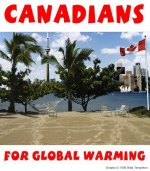It's Climate Change I tell'ya!! IT'S CLIMATE CHANGE!!
- Thread starter B00Mer
- Start date
You are using an out of date browser. It may not display this or other websites correctly.
You should upgrade or use an alternative browser.
You should upgrade or use an alternative browser.
Is George Orwell now head propagandist fort the Liberal Party?More taxes means more money in your pocket.
Didnt you read the propaganda?
How accurate are "computer models"? So far, not very. First it was global warming & then when that didn't jibe with what was happening, it was changed to Climate Change which is totally absurd since climate has been changing for 1000's of years!! So, I am skeptical of said "models". Not saying that something won't happen, just not as portrayed.
I can see you are going to have to spend a lot of years in the reeducation camp before being allowed back into society.How accurate are "computer models"? So far, not very. First it was global warming & then when that didn't jibe with what was happening, it was changed to Climate Change which is totally absurd since climate has been changing for 1000's of years!! So, I am skeptical of said "models". Not saying that something won't happen, just not as portrayed.
I agree. A solar FLARE would disable your truck, cars, planes etc. Same for your computer, and any medical equipment in hospitals, cancer clinics etc..
If your IQ dropped a couple more points you could be a tree.
Cl8mate change exists - as it always has. The present changes are neither radical nor unusualI'm more worried about idiots who argue that climate change doesn't exist regardless of the cause.
I agree. A solar FLARE would disable your truck, cars, planes etc. Same for your computer, and any medical equipment in hospitals, cancer clinics etc..
If your IQ dropped a couple more points you could be a tree.
Roses are red, violets are blue, I have five fingers, the middle one is for you.
BTW, humanity manged without all those luxury items in the 1800, some of us will survive..
Last edited:
Ya think?I can see you are going to have to spend a lot of years in the reeducation camp before being allowed back into society.
NO POLAR OPPOSITES: Melting ice sheets in Arctic also affects Antarctic
Spiro Papuckoski
Jan 06, 2021 • Last Updated 1 day ago • 2 minute read
The Arctic and Antarctic may be polar opposites, but in one sense they are connected despite being thousands of kilometres apart.
According to research recently published in Nature, melting ice sheets in the Northern Hemisphere directly affects the amount of ice in Antarctica.
And that research is headed by Natalya Gomez at McGill’s Department of Earth and Planetary Sciences in Montreal. She’s the lead author of the study that looked at the rise of sea levels and how it influences what happens at the opposite ends of the globe.
“Ice sheets can influence each other over great distances due to the water that flows between them,” Gomez said in a news release. “It’s as though they were talking to one another through sea level changes.”
Researchers used numerical modelling and geological records such as sediment cores, past shorelines and records of land exposure to investigate what is driving changes in the Antarctic ice sheet.
After collecting this information, they were able to simulate changes in both sea levels and ice dynamics in the Arctic and Antarctic over the past 40,000 years. This time frame includes the peak of the last Ice Age, between 26,000-20,000 years ago up to today.
“Polar ice sheets are not just large, static mounds of ice,” Gomez said. “They evolve on various different time scales and are in constant flux, with the ice growing and retreating depending on the climate and the surrounding water levels. They gain ice as snow piles up on top of them, then spread outwards under their own weight, and stream out into the surrounding ocean where their edges break off into icebergs.”
The geologic records suggest the Antarctic ice sheet saw a significant loss of ice during this time period, which included periods of sporadic increased retreat.
And the only reason researchers could find for this change in the Antarctic was the sea level changes driven by the Northern Hemisphere.
“Our results highlight how interconnected the Earth system is, with changes in one part of the planet driving changes in another,” said Gomez.
“In the modern era, we haven’t seen the kind of large ice sheet retreat that we might see in our future warming world. Looking to records and models of changes in Earth’s history can inform us about this.”
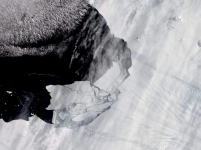
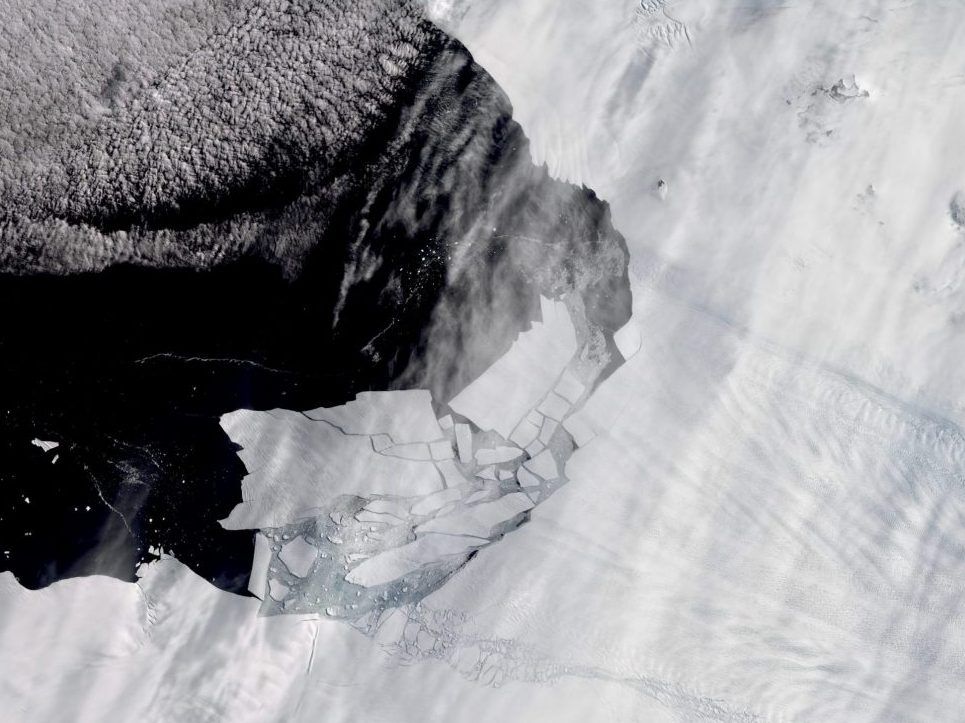
 torontosun.com
torontosun.com
Spiro Papuckoski
Jan 06, 2021 • Last Updated 1 day ago • 2 minute read
The Arctic and Antarctic may be polar opposites, but in one sense they are connected despite being thousands of kilometres apart.
According to research recently published in Nature, melting ice sheets in the Northern Hemisphere directly affects the amount of ice in Antarctica.
And that research is headed by Natalya Gomez at McGill’s Department of Earth and Planetary Sciences in Montreal. She’s the lead author of the study that looked at the rise of sea levels and how it influences what happens at the opposite ends of the globe.
“Ice sheets can influence each other over great distances due to the water that flows between them,” Gomez said in a news release. “It’s as though they were talking to one another through sea level changes.”
Researchers used numerical modelling and geological records such as sediment cores, past shorelines and records of land exposure to investigate what is driving changes in the Antarctic ice sheet.
After collecting this information, they were able to simulate changes in both sea levels and ice dynamics in the Arctic and Antarctic over the past 40,000 years. This time frame includes the peak of the last Ice Age, between 26,000-20,000 years ago up to today.
“Polar ice sheets are not just large, static mounds of ice,” Gomez said. “They evolve on various different time scales and are in constant flux, with the ice growing and retreating depending on the climate and the surrounding water levels. They gain ice as snow piles up on top of them, then spread outwards under their own weight, and stream out into the surrounding ocean where their edges break off into icebergs.”
The geologic records suggest the Antarctic ice sheet saw a significant loss of ice during this time period, which included periods of sporadic increased retreat.
And the only reason researchers could find for this change in the Antarctic was the sea level changes driven by the Northern Hemisphere.
“Our results highlight how interconnected the Earth system is, with changes in one part of the planet driving changes in another,” said Gomez.
“In the modern era, we haven’t seen the kind of large ice sheet retreat that we might see in our future warming world. Looking to records and models of changes in Earth’s history can inform us about this.”


NO POLAR OPPOSITES: Melting ice sheets in Arctic also affects Antarctic
The Arctic and Antarctic may be polar opposites, but in one sense they are connected despite being thousands of kilometres apart.
It's cold in Mexico, bought a hoodie..
Must be Climate Change
Must be Climate Change
Well this winter is especially hard on a few locations..
Blizzard kills 4, brings much of Spain to a standstill | CTV News
Chinese snap up heating goods as cold spell hits swaths of nation - Global Times
Extreme ocean-effect snow hammers Japan, traps drivers - The Washington Post
Blizzard kills 4, brings much of Spain to a standstill | CTV News
Chinese snap up heating goods as cold spell hits swaths of nation - Global Times
Extreme ocean-effect snow hammers Japan, traps drivers - The Washington Post
Rick Perry Slams John Kerry: ‘Get Off the Private Jet Ya Hypocrite!’
While John Kerry, Joe Biden’s special envoy for climate, is busy lecturing others about climate change, he is busy flying around the world on private jets. Do as I say, not as I do....huh?What a hypocrite!
Former Energy Secretary Rick Perry laid into the former Secretary of State while speaking with Fox News host Neil Cavuto on Tuesday’s broadcast of “Your World.”
He stated that Kerry is “a pretty poor spokesperson” for climate change.
Cavuto then noted Kerry’s recent suggestion for fired Keystone XL Pipeline workers to get jobs working with solar panels or wind turbines. “How do they transition to making, building, putting on homes and businesses solar panels? How do they do that without — without some preparation, without going back essentially to the beginning, to zero?” he pondered.
“First off, John Kerry is a pretty poor spokesperson for the climate business when he hops on his private jet and the leaves a trail of emissions that is about 40 times more than what it would be if he flew first class on a, you know, United Airlines going somewhere, American airlines, one of our great airlines. Matter of fact, they probably need the work right now,” Perry responded. “So it just doesn’t square good with me.”
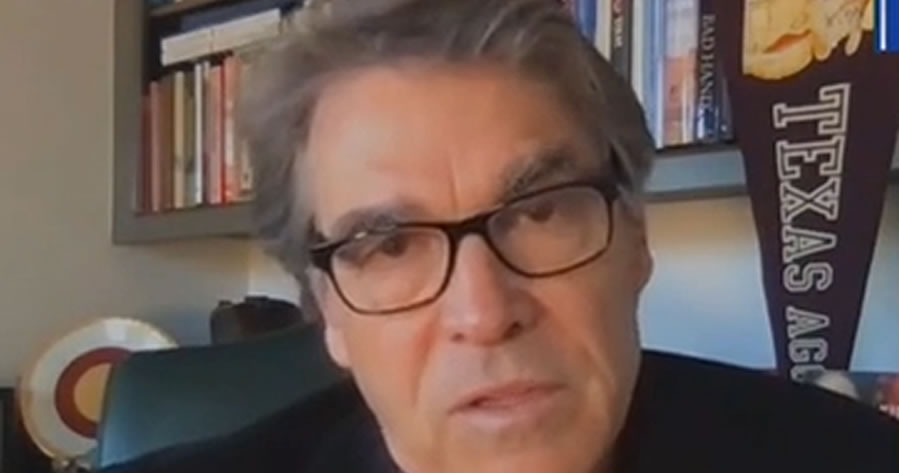
Rick Perry Slams John Kerry: ‘Get Off the Private Jet Ya Hypocrite!’ - Daily Political Newswire
While John Kerry, Joe Biden’s special envoy for climate, is busy lecturing others about climate change, he is busy flying around the world on private jets. Do as I say, not as I do....huh? What a hypocrite! Former Energy Secretary Rick Perry laid into the former Secretary of State while speaking...
 dailypoliticalnewswire.com
dailypoliticalnewswire.com
On Sept.21, scientists at the United States-based National Snow and Ice Data Centre (NSIDC), announced that Arctic sea ice coverage had contracted to a near-unprecedented minimum of 3.74 million square kilometers on Sept. 15, the second lowest in 42 years of recordsNO POLAR OPPOSITES: Melting ice sheets in Arctic also affects Antarctic
Spiro Papuckoski
Jan 06, 2021 • Last Updated 1 day ago • 2 minute read
The Arctic and Antarctic may be polar opposites, but in one sense they are connected despite being thousands of kilometres apart.
According to research recently published in Nature, melting ice sheets in the Northern Hemisphere directly affects the amount of ice in Antarctica.
And that research is headed by Natalya Gomez at McGill’s Department of Earth and Planetary Sciences in Montreal. She’s the lead author of the study that looked at the rise of sea levels and how it influences what happens at the opposite ends of the globe.
“Ice sheets can influence each other over great distances due to the water that flows between them,” Gomez said in a news release. “It’s as though they were talking to one another through sea level changes.”
Researchers used numerical modelling and geological records such as sediment cores, past shorelines and records of land exposure to investigate what is driving changes in the Antarctic ice sheet.
After collecting this information, they were able to simulate changes in both sea levels and ice dynamics in the Arctic and Antarctic over the past 40,000 years. This time frame includes the peak of the last Ice Age, between 26,000-20,000 years ago up to today.
“Polar ice sheets are not just large, static mounds of ice,” Gomez said. “They evolve on various different time scales and are in constant flux, with the ice growing and retreating depending on the climate and the surrounding water levels. They gain ice as snow piles up on top of them, then spread outwards under their own weight, and stream out into the surrounding ocean where their edges break off into icebergs.”
The geologic records suggest the Antarctic ice sheet saw a significant loss of ice during this time period, which included periods of sporadic increased retreat.
And the only reason researchers could find for this change in the Antarctic was the sea level changes driven by the Northern Hemisphere.
“Our results highlight how interconnected the Earth system is, with changes in one part of the planet driving changes in another,” said Gomez.
“In the modern era, we haven’t seen the kind of large ice sheet retreat that we might see in our future warming world. Looking to records and models of changes in Earth’s history can inform us about this.”
View attachment 4654

NO POLAR OPPOSITES: Melting ice sheets in Arctic also affects Antarctic
The Arctic and Antarctic may be polar opposites, but in one sense they are connected despite being thousands of kilometres apart.torontosun.com
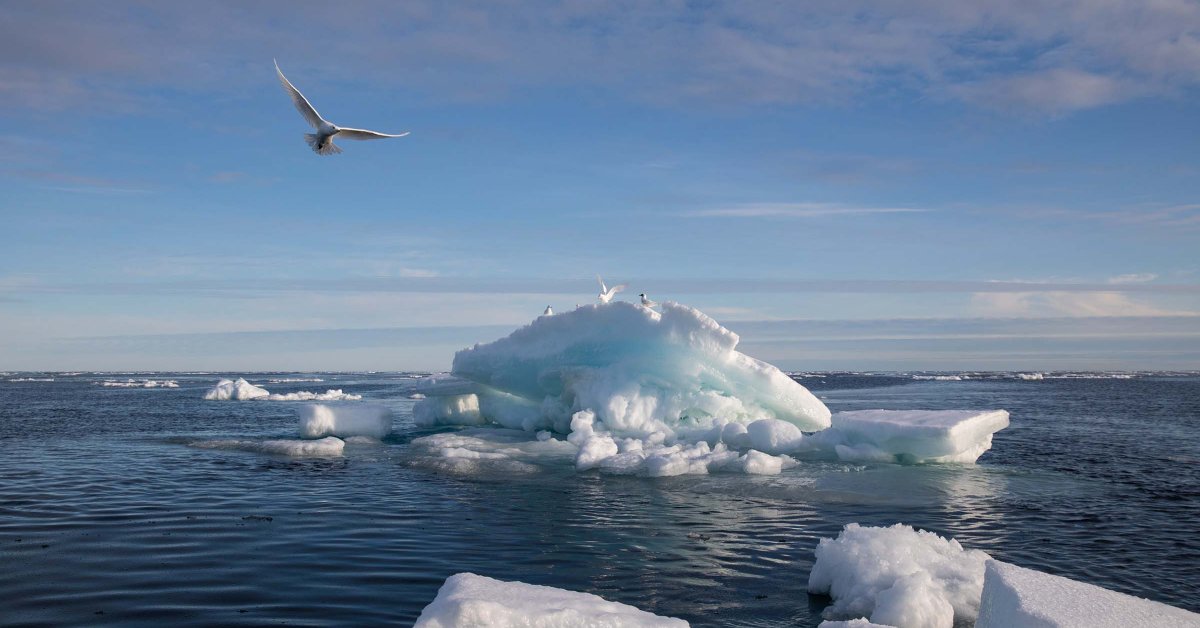
‘A Climate Emergency Unfolding Before Our Eyes.’ Arctic Sea Ice Has Shrunk to Almost Historic Levels
A near record low in sea ice coverage in the Arctic, combined with the loss of Greenland's glaciers, serves as a warning for climate change
Near-unprecedented minimum of 3.74 million square kilometers on Sept. 15, the second lowest in 42 years of records
2nd lowest in 42 whole years eh?
OMG maybe the world will end in 10 years /s
Sorry not a laughing matter
Sorry not a laughing matter
The sky is falling.On Sept.21, scientists at the United States-based National Snow and Ice Data Centre (NSIDC), announced that Arctic sea ice coverage had contracted to a near-unprecedented minimum of 3.74 million square kilometers on Sept. 15, the second lowest in 42 years of records

‘A Climate Emergency Unfolding Before Our Eyes.’ Arctic Sea Ice Has Shrunk to Almost Historic Levels
A near record low in sea ice coverage in the Arctic, combined with the loss of Greenland's glaciers, serves as a warning for climate changetime.com
Near-unprecedented minimum of 3.74 million square kilometers on Sept. 15, the second lowest in 42 years of records
2nd lowest in 42 whole years eh?

I hear Greta got caught posting scripted messages on FakeBook.
Her handlers got caught posting as GretaI hear Greta got caught posting scripted messages on FakeBook.



